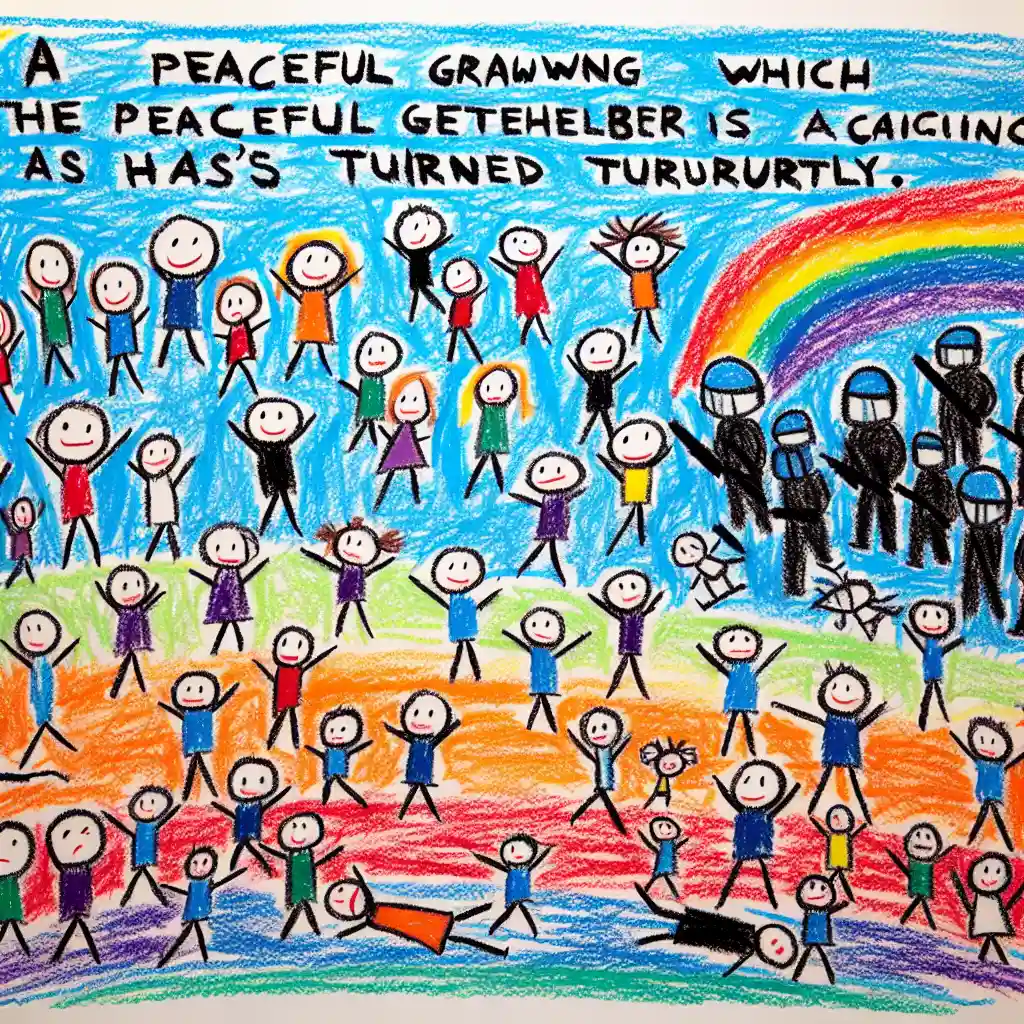Police say asylum protest turned into 'thuggery'

Explain Like I'm 5
Imagine you're at school and some kids are having a disagreement about a toy. Instead of talking about it nicely, they start throwing sand and making a mess. The teacher steps in and says, "This isn't playing nice; this is just being naughty!" Something similar happened during a protest. A group of people were protesting outside a hotel where people who have come from other countries for safety (asylum seekers) are staying. The protest was supposed to be like a discussion, but it turned into a bit of a mess, with some people doing naughty things. The police had to step in and arrest six people because they were not playing nice.
Explain Like I'm 10
In Essex, a group of people gathered to protest outside a hotel that's being used to house asylum seekers — these are people who have moved to another country to escape bad situations in their own countries. Protests are supposed to be a way for people to express their opinions or concerns about something peacefully. However, this protest got out of hand, and some people started causing trouble, which is why the police called it 'thuggery,' meaning they were being rough and not peaceful at all. The police had to arrest six people because they were not just protesting but were also breaking rules and possibly scaring or harming others. It's like when a peaceful discussion turns into a shouting match; it doesn't solve anything and usually just makes things worse.
Explain Like I'm 15
In Essex, a situation escalated during a protest outside a hotel housing asylum seekers. Asylum seekers are individuals who flee their countries due to threats of persecution or violence, seeking safety elsewhere. Protests like these are often charged with strong emotions, reflecting deeper societal issues such as migration policies, national security, and humanitarian responsibilities.
This specific protest, however, deviated from a peaceful demonstration to what police described as 'thuggery,' a term indicating violent or criminal behavior. Six individuals were arrested, suggesting that the actions taken were beyond legal protesting methods and ventured into potentially harmful territory. This incident highlights the tension that can arise when local communities react to national policy decisions, particularly concerning immigration and asylum.
The broader implications here touch on how societies respond to newcomers, especially under legal protections like asylum. It also raises questions about the balance between freedom of expression and maintaining public order. Moving forward, this event could influence public and policy discussions on how to manage protests and integrate asylum seekers into communities without escalating conflicts. What happens next could set precedents for future interactions and policy implementations regarding asylum seekers in the community.
Want to read the original story?
View Original Source